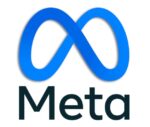Apple must allow alternative app stores on the iPad, thanks to the European Union’s (EU) Digital Markets Act (DMA). The DMA, alongside the Digital Services Act (DSA), is part of a raft of measures designed to ensure greater transparency and choice for consumers in an age of increasingly powerful tech behemoths. One of the key aims is to stop those who own large platforms from leveraging that platform to sell only their own products at the expense of others.

ALLi News Editor, Dan Holloway
Apple is the epitome of this kind of practice, locking people into its systems and proprietary products, delivered without competition to anyone using those systems. Amazon has also come under pressure for similar practices, often being accused of shutting out others on its marketplace in favor of its own brands.
Apple's Ecosystem
Apple still gets to leverage the popularity of its ecosystem. Anyone wanting to make an app available at large scale will have to pay Apple’s Core Technology Fee to do so. Ostensibly a way of safeguarding the security of anything run on Apple devices, this charge has already caused a major row with Spotify.
What really interests me is the coincidence of this with the recent layoffs in Apple Books and its news media. I wonder if Apple, seeing the DMA coming down the road, is preparing to accept that iPad users will want to get much of their written content from elsewhere and whether other ebook apps will now be how we find customers who use Apple devices.
Meta Trains AI
 Speaking of big tech companies leveraging the size of their platforms, do you remember the outcry when Meta planned to train its AI on people’s Facebook posts but barely notified them and made them write an essay to be exempt? The uproar led to a swift backtrack.
Speaking of big tech companies leveraging the size of their platforms, do you remember the outcry when Meta planned to train its AI on people’s Facebook posts but barely notified them and made them write an essay to be exempt? The uproar led to a swift backtrack.
But now, it seems these plans are back in the offing in the UK. Facebook and Instagram posts that are set to public viewing will be used to train AI under what one can only assume are a revised set of plans.
Meta says the aim is to help its AI capture UK idiom. Based on past experience, users' opinions on the value of such a tool will likely depend on how sneakily it’s introduced and how cumbersome the opt-out process is.




